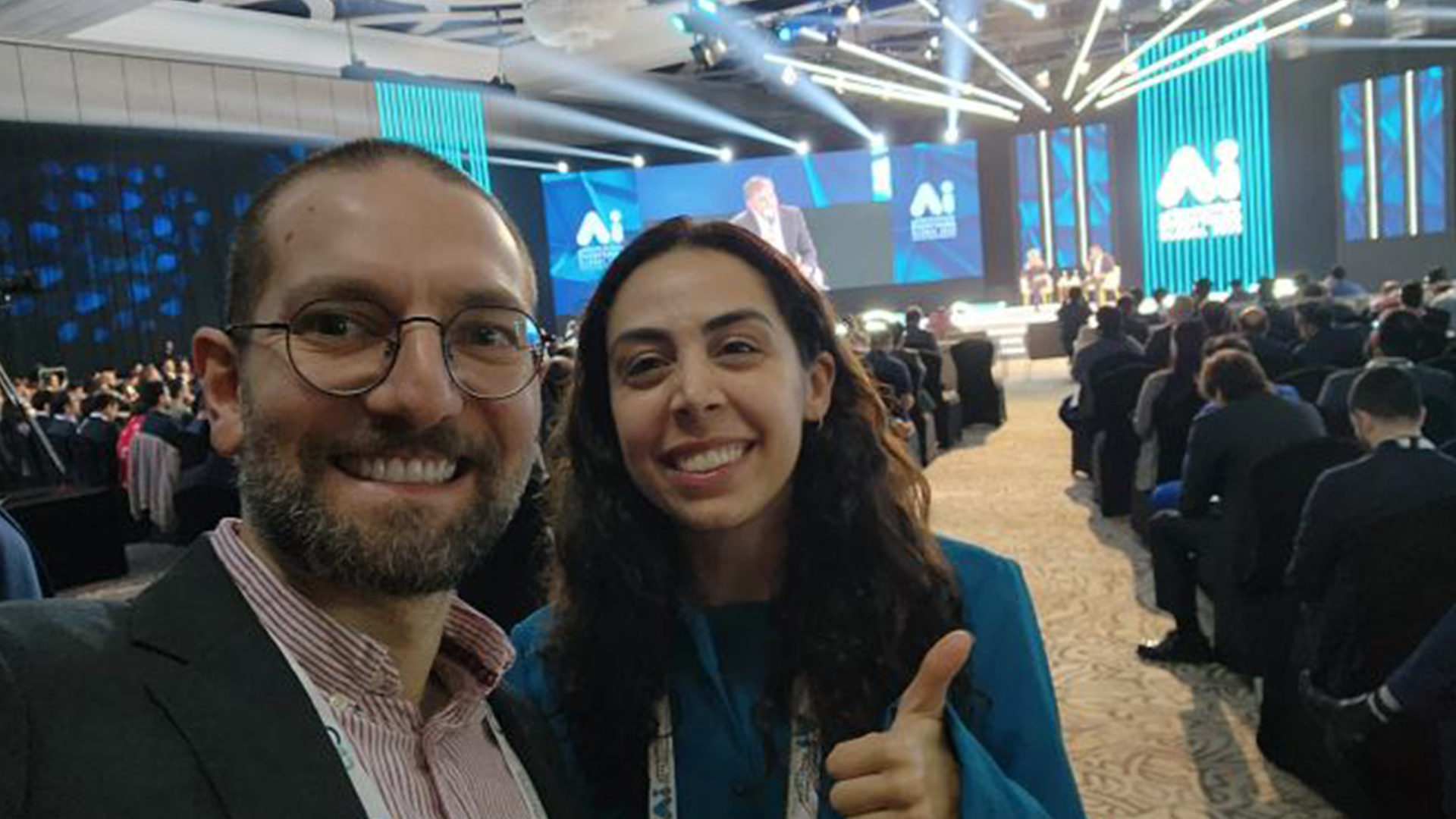Lebanese entrepreneur Christophe Zoghbi’s educational platform, ZAKA, is empowering Lebanon’s youth and the wider MENA region with practical AI skills, bridging local talent, diaspora support, and regional demand to shape the future of technology
From Beirut to the GCC: The push to democratize AI education
From Beirut to the GCC: The push to democratize AI education


Lebanon’s large diaspora has long been a lifeline to their ancestral homeland, sustaining families through remittances, fueling the summer economy with their return visits, and investing in private ventures to keep the country afloat. Yet, how often do we hear about diaspora members offering Lebanon’s youth a chance to exercise their natural talents in the rapidly growing field of technology, and more specifically, artificial intelligence?
This is where ZAKA steps in. The educational platform, founded by Lebanese entrepreneur Christophe Zoghbi, is dedicated to teaching the fundamentals of AI to learners of all backgrounds, both technical and non-technical. At its core, ZAKA exists to meet a critical need: training a job market hungry for the power of AI.
Speaking to The Beiruter from his home in Canada, Zoghbi explained the vision behind ZAKA and its role in developing the next generation of talented AI users in Lebanon and beyond.
A platform born of a gap and a passion
Zoghbi recalls the moment ZAKA’s mission emerged. “The idea for ZAKA was born from both a gap and a passion,” he explains. “On one side, the MENA region lacked accessible, high-quality opportunities to learn and apply AI, even though talent and curiosity were abundant. On the other, I personally experienced how transformative AI knowledge could be, not just for engineers, but for entire industries.”
This realization became the catalyst for ZAKA, which today operates across Lebanon and the wider region, aiming to empower individuals, startups, and organizations to not only keep pace with the global AI movement but to actively shape it.
Making AI accessible to all
Unlike many tech education initiatives, ZAKA was never meant for coders alone. “ZAKA is for everyone with an interest in AI,” Zoghbi says. “Technical professionals and students can deepen their expertise in data science, machine learning, or advanced applications. But we also welcome business leaders, educators, marketers, and healthcare professionals who want to understand AI concepts and apply them in their work. Our philosophy is that AI shouldn’t be locked behind technical barriers; it should be accessible, adaptable, and relevant to any sector or role.”
This broad approach reflects a growing global truth: AI is no longer confined to the tech industry. From finance and marketing to medicine and education, its applications are multiplying, and ZAKA wants to make sure the region’s workforce is ready.
Building skills for the future
To prepare learners, ZAKA relies on what Zoghbi calls a two-pronged strategy: horizontal expansion and vertical specialization. On one hand, the platform continues to develop foundational programs for beginners, ensuring anyone can take their first step into AI. On the other, it is creating specialized courses tailored to industries such as healthcare, law, and business management.
“We see massive opportunities in finance and cybersecurity as well,” he notes, pointing to the speed with which AI is transforming these fields. The ultimate goal is for learners not only to understand AI in theory but also to apply it directly to the challenges their industries face.
 Photo: Christophe Zoghbi, Founder & CEO of ZAKA, at Ai Everything Global - Abu Dhabi.
Photo: Christophe Zoghbi, Founder & CEO of ZAKA, at Ai Everything Global - Abu Dhabi.
From Beirut to the Gulf
Lebanon was ZAKA’s natural launchpad. Despite years of economic crisis, the country has always boasted a strong talent pool and a vibrant academic community. ZAKA found its earliest and most engaged users in Beirut.
But the platform’s ambitions extend far beyond Lebanon. “The GCC is particularly exciting,” says Zoghbi.
Governments and companies there are investing heavily in AI and digital transformation. We’re already expanding into Saudi Arabia, the UAE, and Qatar, where the demand for AI upskilling is high and the appetite for innovation is even higher. Over the next few years, we expect to see our strongest growth coming from GCC nations
Here, too, the diaspora plays a role, exporting Lebanese expertise and educational models across the region, bridging Beirut’s resilience with Gulf ambition.
Learning by doing
Another key to ZAKA’s model is ensuring education remains practical. Every program includes capstone projects where participants tackle challenges modeled on real industry problems. Hackathons are also a regular feature, giving learners the chance to innovate under pressure and present their ideas.
“Learning is never just theoretical at ZAKA,” Zoghbi emphasizes. “Through our partnerships with companies, learners get to work on actual business problems. That way, they don’t just graduate with knowledge, but with a portfolio of practical work, and the confidence to implement AI in their careers.”
Supporting entrepreneurs
Beyond education, ZAKA has also become a hub for entrepreneurial support. Through initiatives like ZAKA Launchpad, early-stage AI startups can pitch to judges, gain visibility, and receive mentorship. The platform also connects aspiring founders with investors, co-founders, and technical advisors.
“ZAKA doesn’t just upskill talent,” Zoghbi explains. “We want to enable founders to bring their AI ideas to life. That means giving them the tools, guidance, and network to scale their ventures.”
Shaping a regional future
What began as a response to Lebanon’s educational and economic challenges has grown into a regional initiative with global aspirations. For Zoghbi, the mission is simple: to ensure that the Middle East is not left behind in the AI revolution.
We want individuals, startups, and organizations here to participate in and shape the global AI movement, instead of just consuming it
For Lebanon, still reeling from crisis after crisis, platforms like ZAKA provide a rare glimpse of possibility. By combining diaspora initiative, local talent, and regional demand, they offer a roadmap for how Beirut’s youth can not only survive but thrive in a technology-driven future.
AI’s talent and its capacity to transform lives is not far away in Silicon Valley. It is here in Beirut, and it’s not going away.

